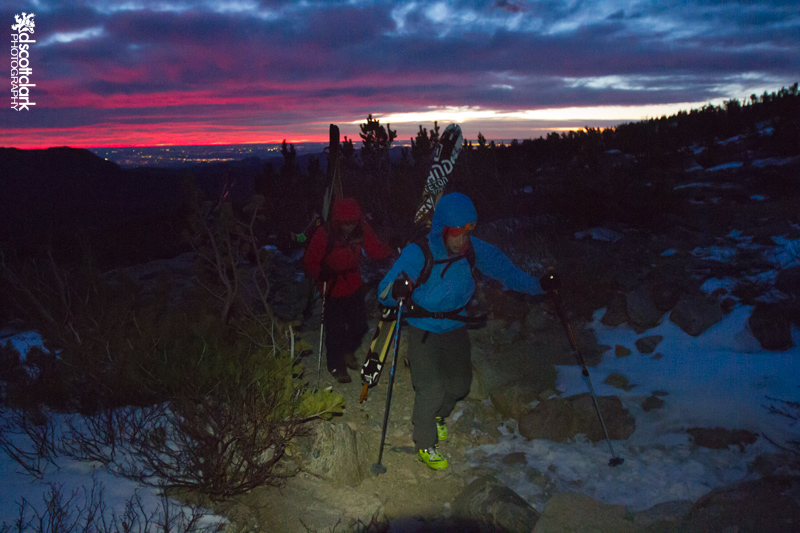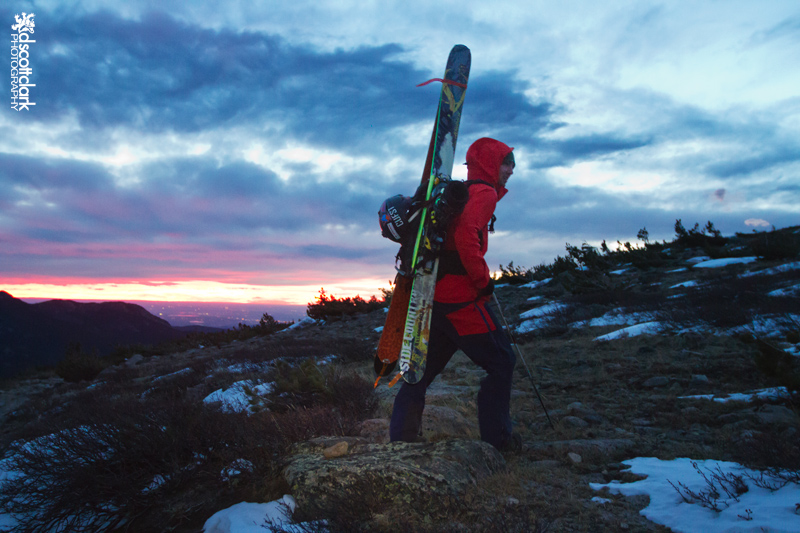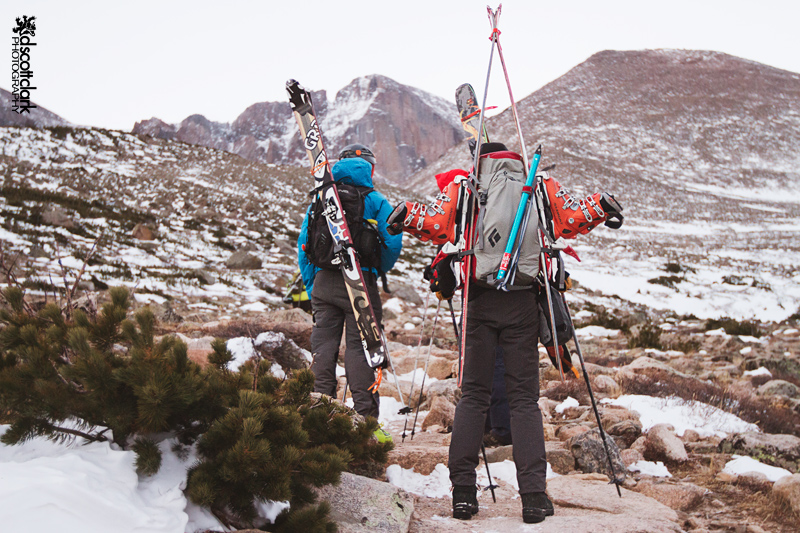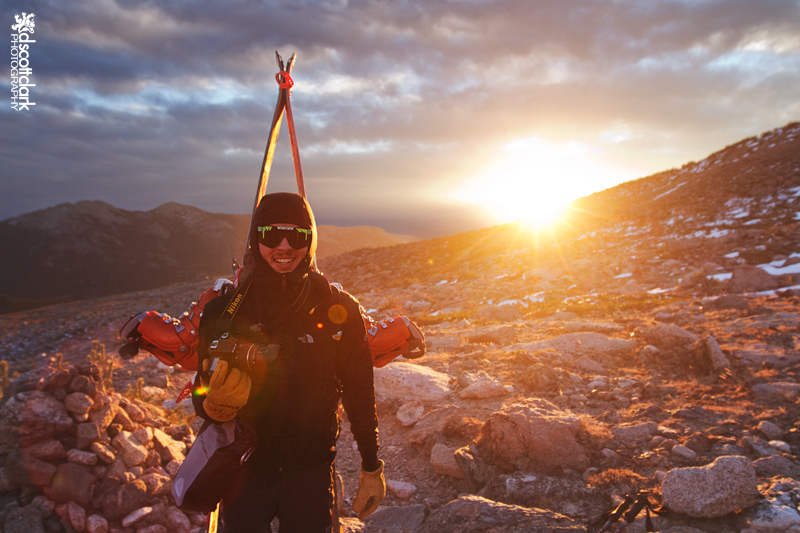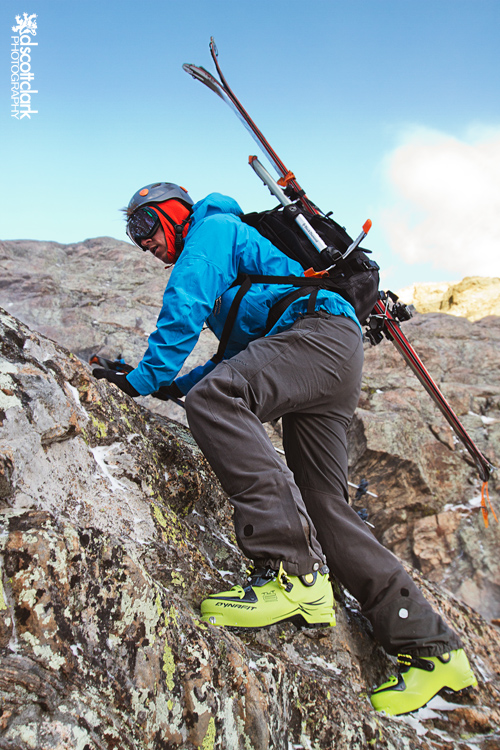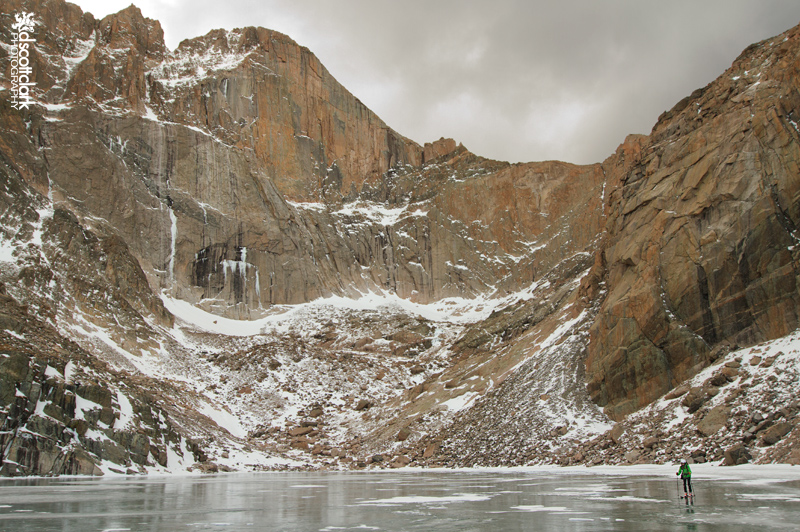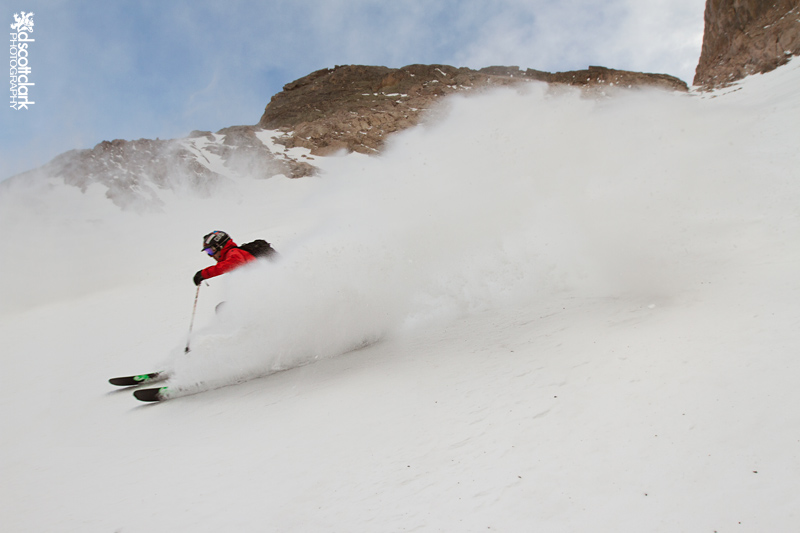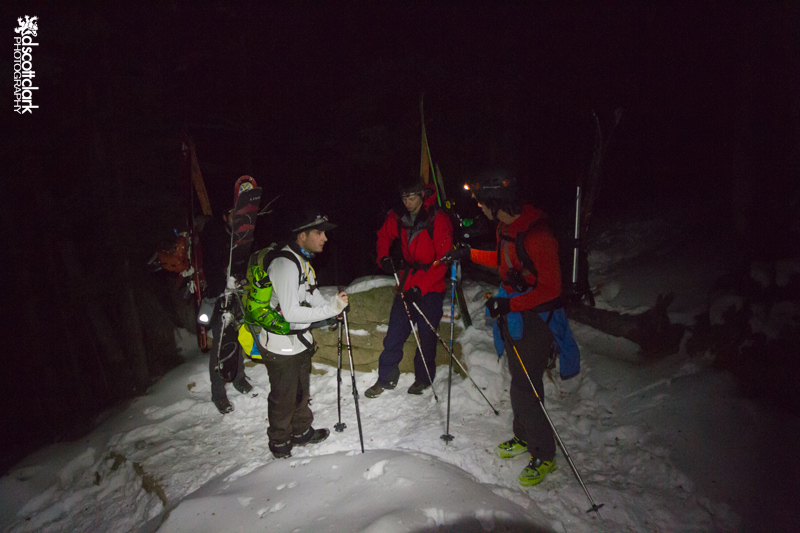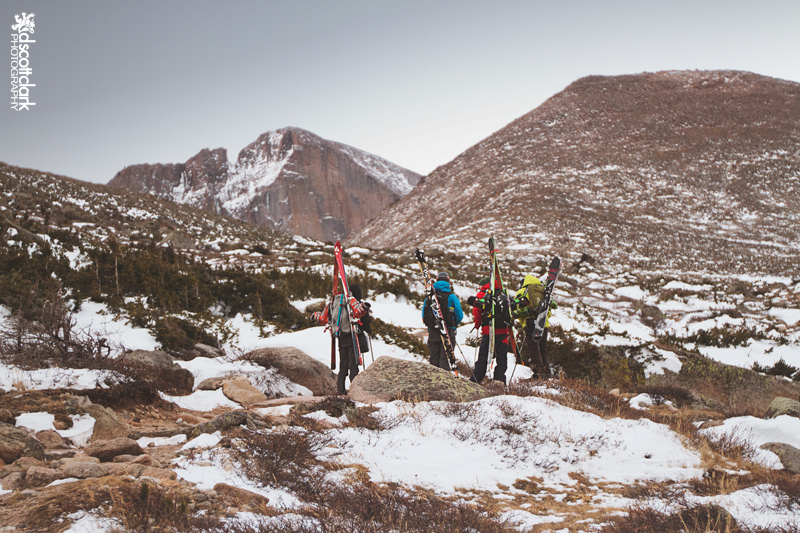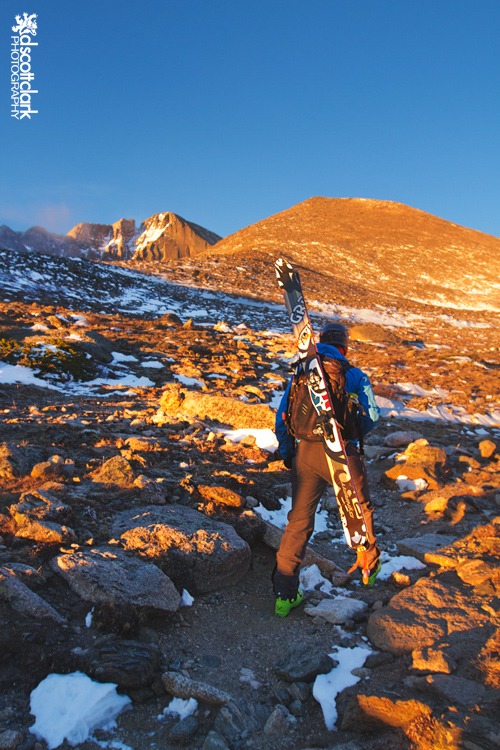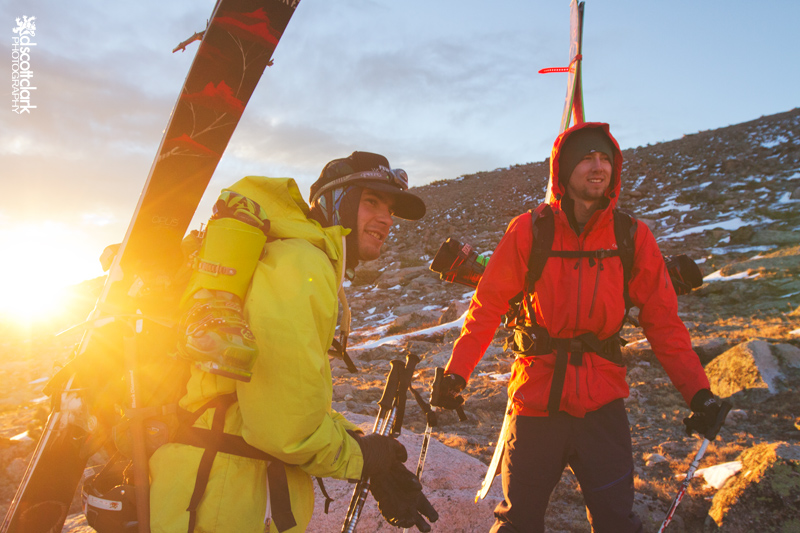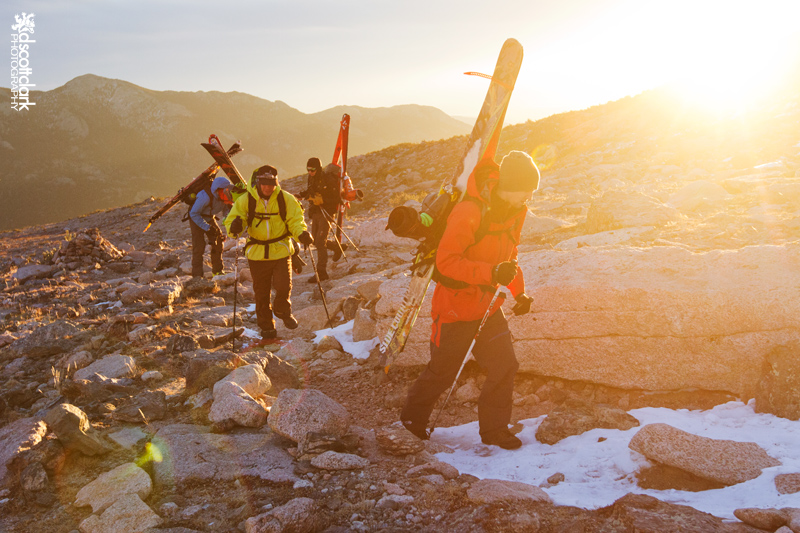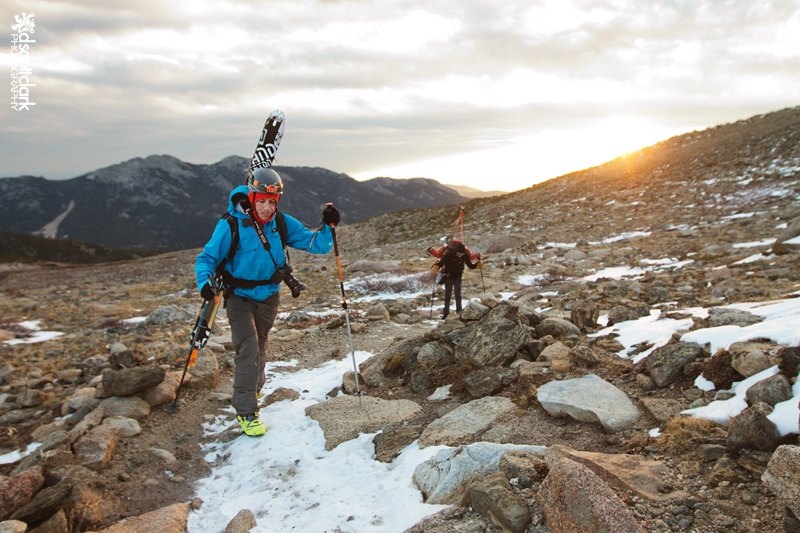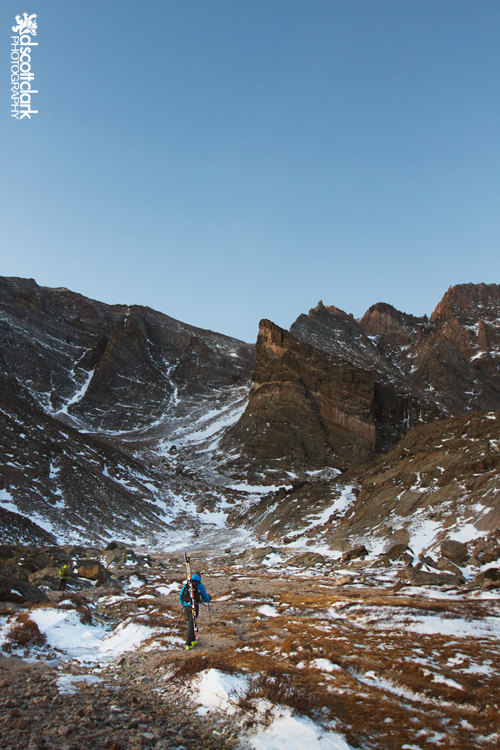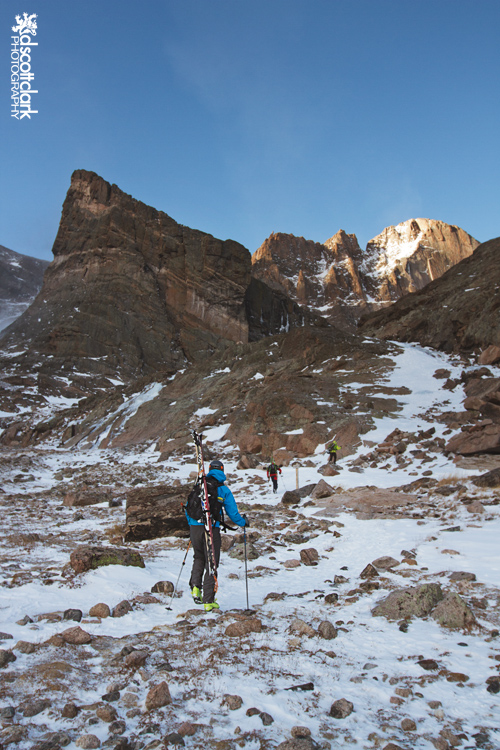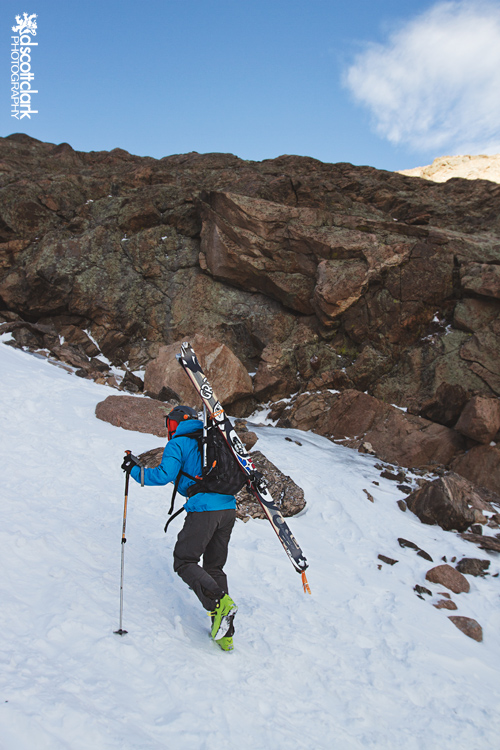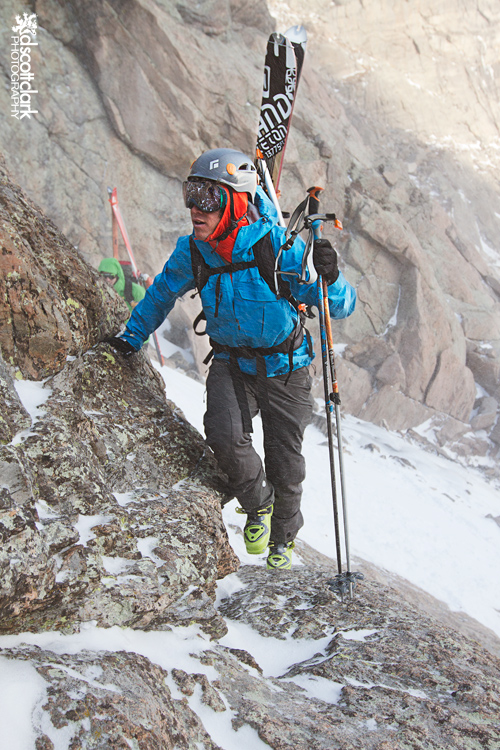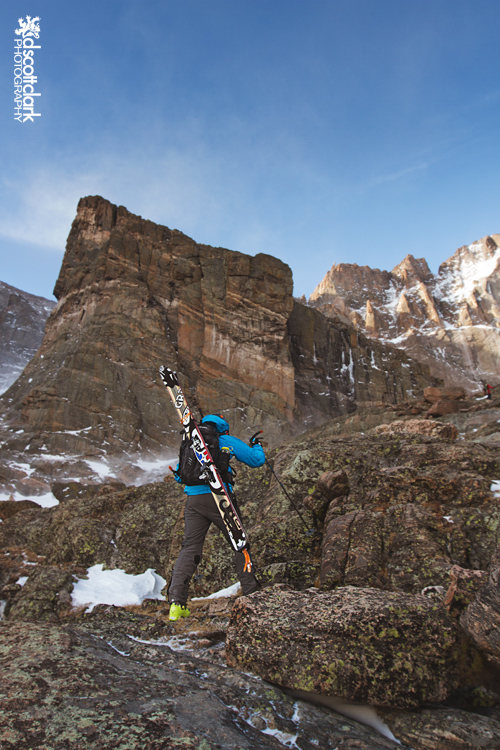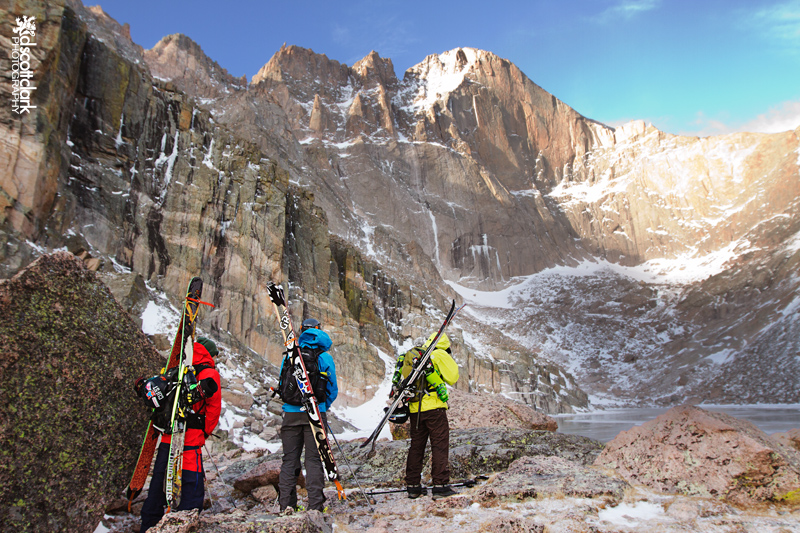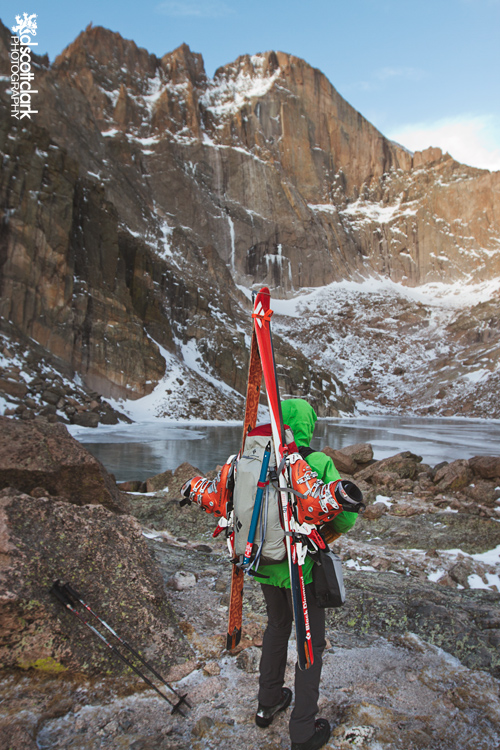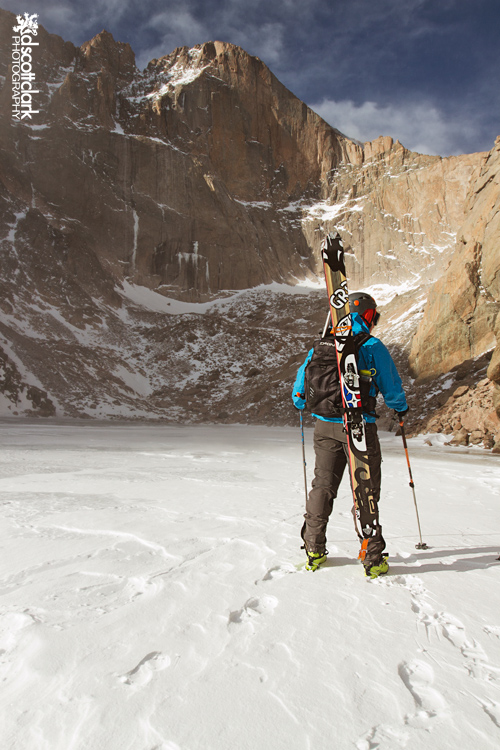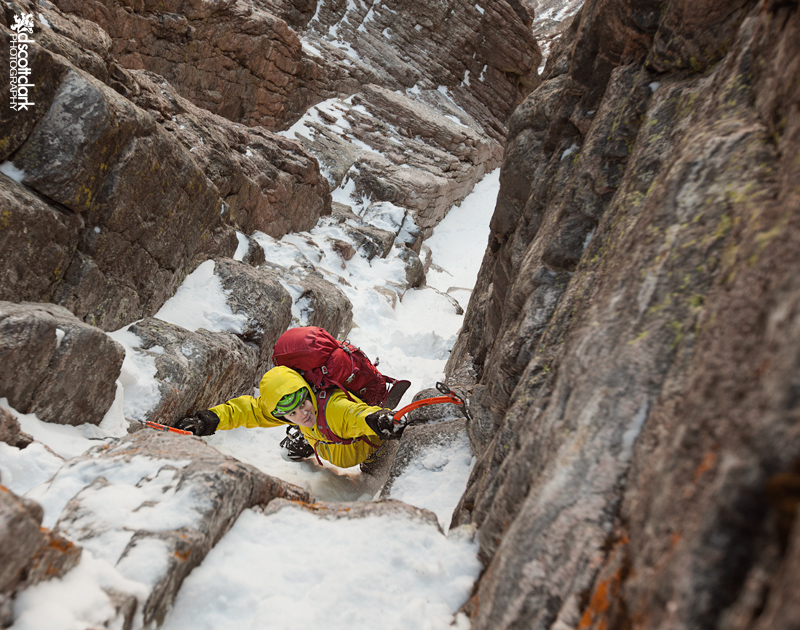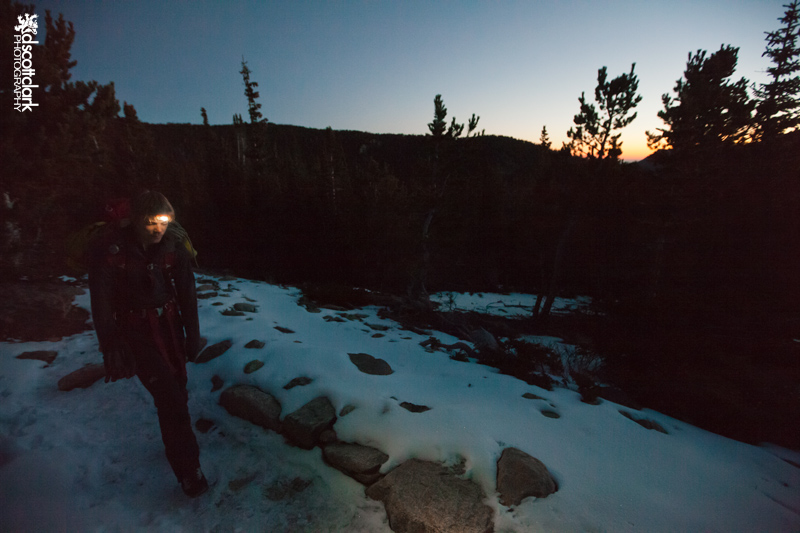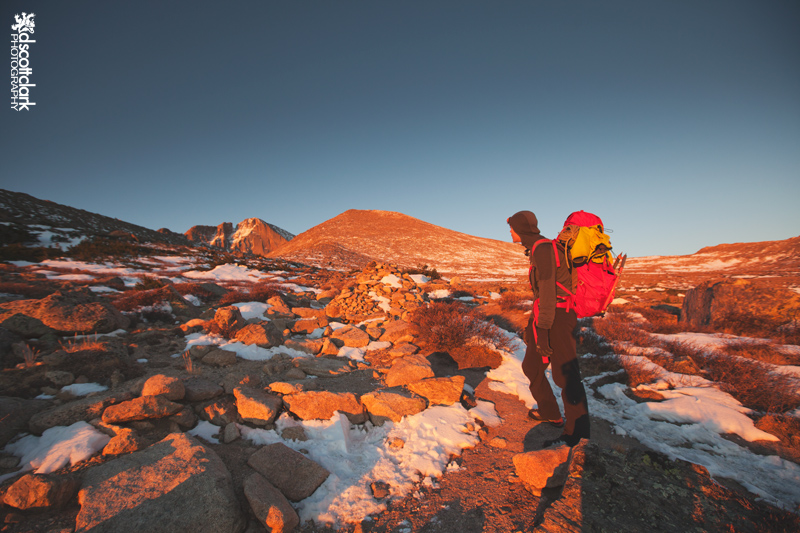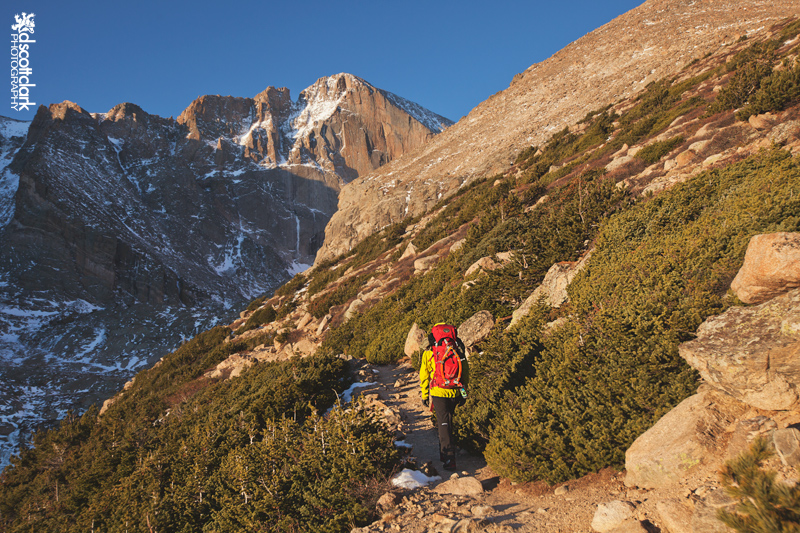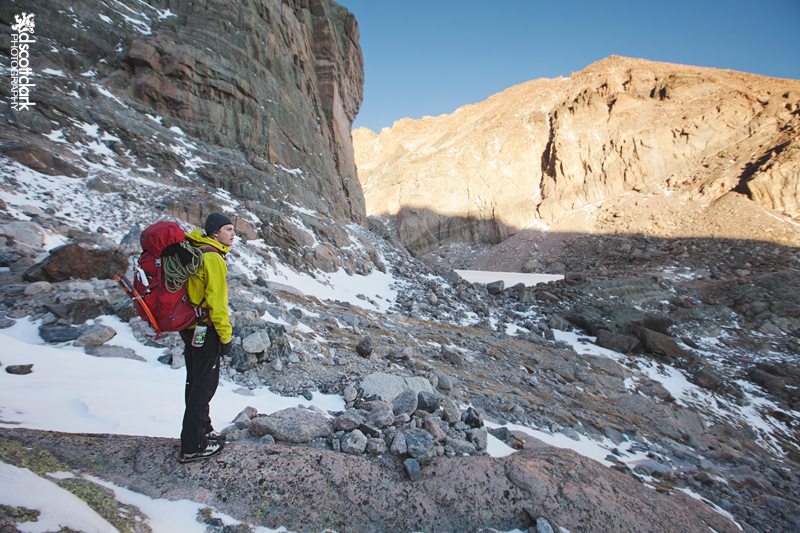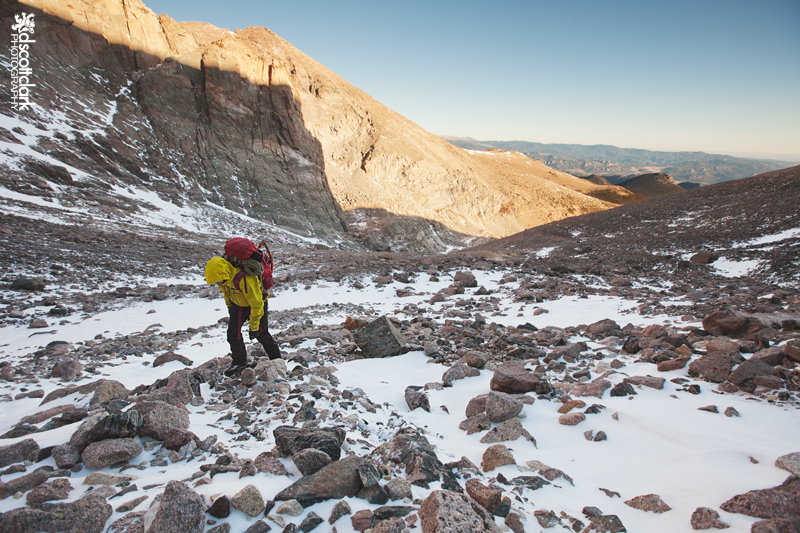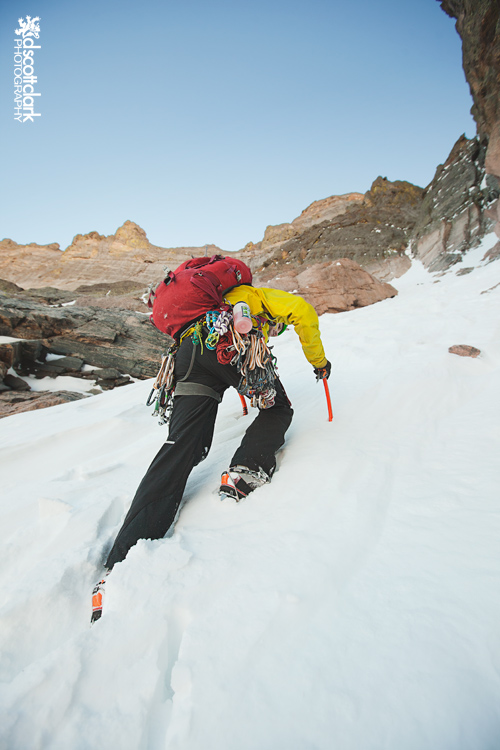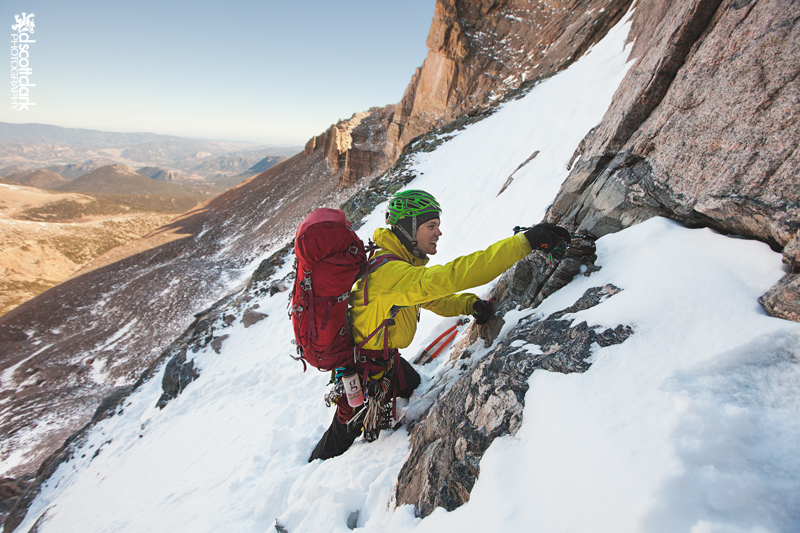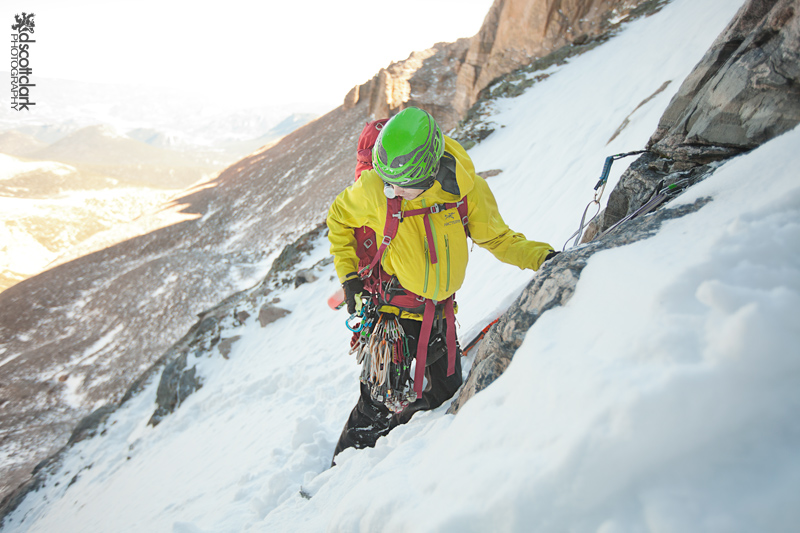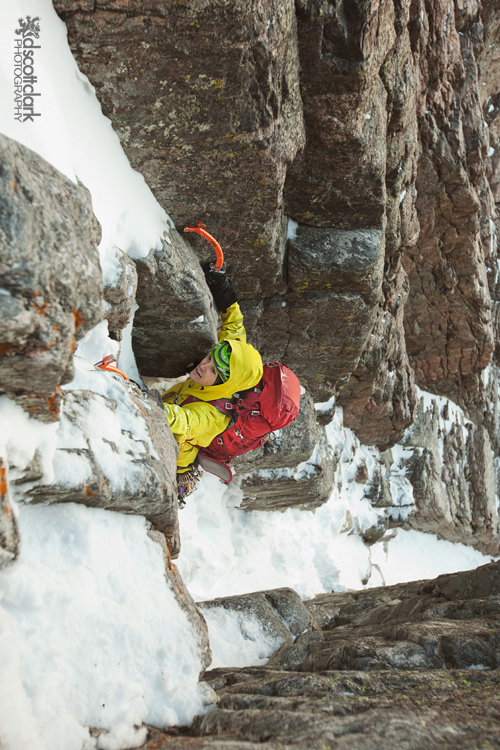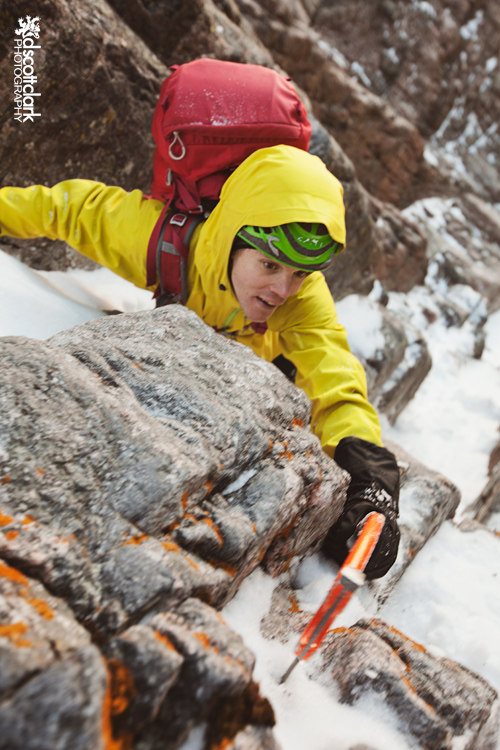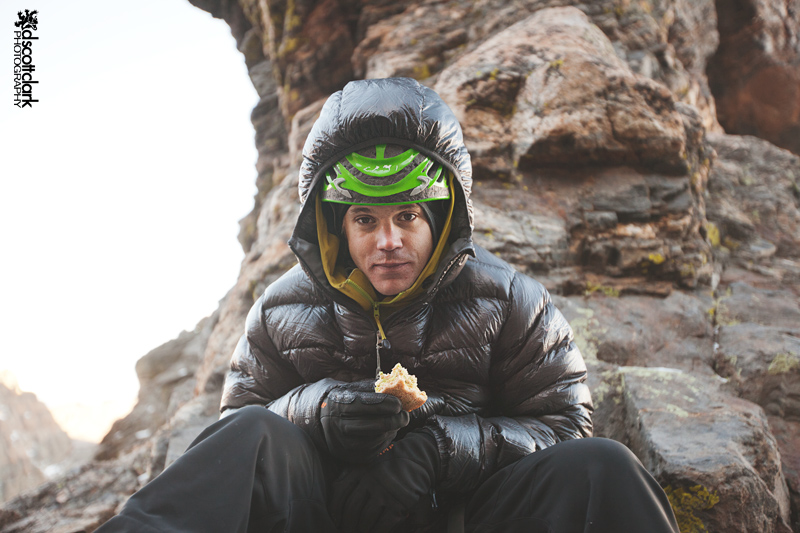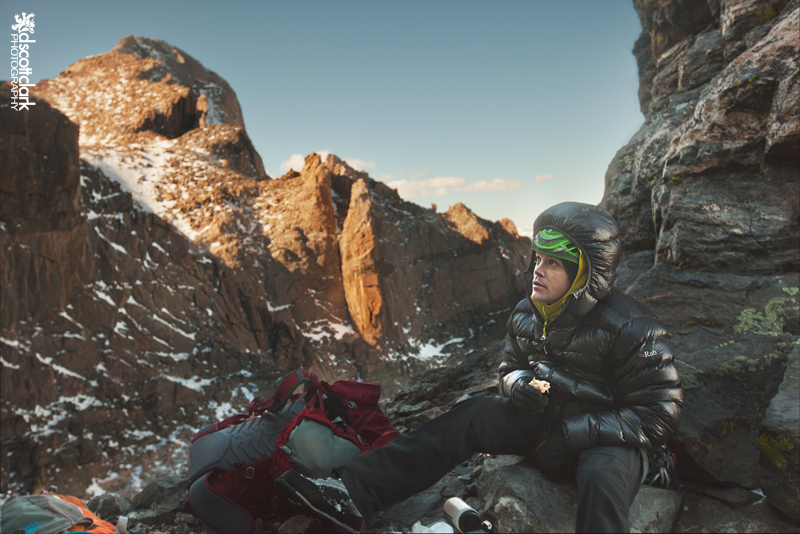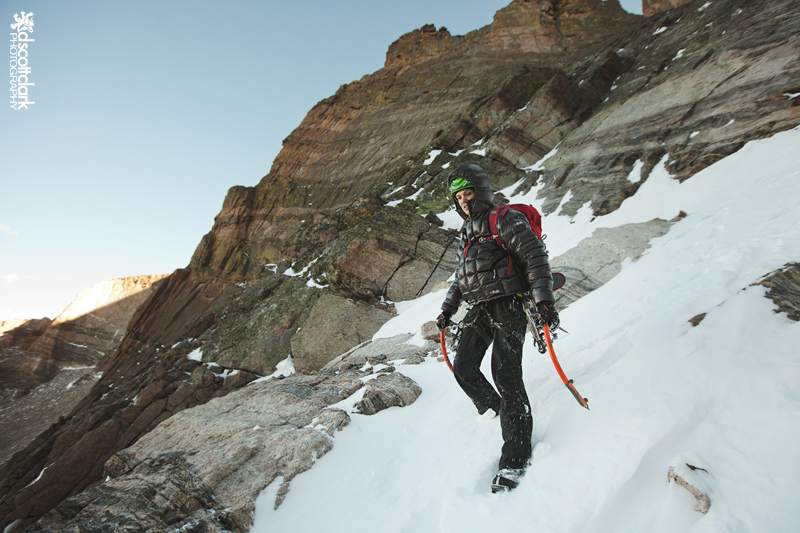“Want to go do some mixed climbing in the Park (RMNP) Saturday?”
“For sure! When do we leave?” I say.
“2-3am?”
I have a Halloween party at my house Friday night…I can make it work.
“Yeah! I can do that.”
When Tristan Hobson hit me up for an adventure I was psyched to get out with him. He had pretty grand plans for climbing Alexander’s Chimney, up through the Notch, and summiting Longs Peak. I was just down for an adventure.
I sleep for roughly an hour and half after the party before meeting up with Tristan at 3am in the dark parking lot. I groggily grab my bag and jump in his Toyota truck. The road to Longs from Lyons was still closed from the floods so we had to take the Peak to Peak Highway through Nederland. Just as we got on the Peak to Peak I remembered I’d forgotten something crucial.
“You’re going to hate me…I forgot my harness in my car.”
We sat for a little bit contemplating what to do, then drove the 30 minutes back to my car.
“It’s almost 4am. Do you still want to go out?”
“I’m up, I’m psyched to do something.”
Tristan didn’t think we had enough time to accomplish his original objective, so we decided to climb the Dreamweaver couloir on Mt Meeker, next to the Flying Buttress.
Almost an hour later than we had planned we pull in to a full parking lot, as if it were still summer instead of a cold October morning.
The five mile approach takes you from roughly 9,000 feet above sea level to 12,000 feet above sea level. We start in the dark with only the light of our headlamps leading us through the woods, but before long the sky starts to brighten with the first signs of the sun. The sunrise comes up over the city of Lyons, beyond a few peaks to the east, and filters through the trees just below tree line. The trees get much shorter and scragglier as we keep trudging up hill.
Finally the Diamond comes into view, soaking in the alpenglow.
From the Chasm Junction, Dreamweaver looks to be in quite nicely. Ahead of us, the Smear of Fear is in pretty fat, but our original objective, the Notch, looks pretty thin.
I’m glad we picked to go up on Meeker, since you don’t have to do the traverse across a not-quite-frozen Chasm lake.
We finally reach the base of the Dreamweaver Couloir. The snow up to it was a little soft, but still firm enough to walk comfortably. But as we get higher into the couloir the snow gets softer and softer.
I start crossing into a small snow field below the first crux of the route and the snow seems a bit unstable, so we make an anchor and I tie in, just in case. The crux itself looks pretty easy, so I don’t plan on doing it as a lead, but as a free solo. I keep the rope on me so I can belay Tristan across the snowfield after I’m above the crux.
“Do you want some cams and nuts?” Tristan asks before I take off.
“Sure, I’ll use them to make an anchor at the top, just in case.”
In the constriction the snow just collapses beneath me, dropping me below my ice tools that are stuck in the rock. I manage to climb back up to my tools, just wallowing in the snow. I can’t count on any support for my feet from the snow at all. I pull myself up to my tools and press my crampons into nonexistent holds.
‹side note› One of the things I love about ice climbing is when you sink your tools you know without a shadow of a doubt, because of the combination of sight, sound, and feel, that they are going to stick and be able to support your weight. Dry tooling (using your ice tools on dry rock), on the other hand, is incredibly unstable. Never does a placement feel 100% secure; anything could pop at any moment. You pull up praying that each tool holds long enough for you to place the next one. Your crampon-ed feet scrape their way up the rock face, alway potentially slipping. You would give anything to be using the sticky rubber of rock climbing shoes that will stick on the smallest pebble. ‹/side note›
With my feet pressuring off opposite sides of the constriction and my tools finding whatever small crack to pull on I inch my way up, miraculously finding a frozen fixed sling left by someone else for protection. I quickly clip in, incredibly thankful to have some form of protection on this unexpectedly hard climb. Though, I was only using one 7.8mm rope that are meant to be used in pairs. The route had looked easy so because snow filled up the constriction, but now the snow offered absolutely no assistance in my climb and was more of an enemy of forward movement. With every move I had to use one tool to clear off the foot of powder that hid the rock below. Each time I reached above another rock I tried desperately to stick my tool blindly into what lay beneath the snow, mostly to no avail. I would either hit featureless slab and my tool would just scrape down or small loose rocks. The only firm holds I had were generally on my left in a small crack system. And my feet felt as if they were dangling helplessly below me.
As I cleared off more of the powder I uncover two more slings spaced out every ten feet or so, each time temporarily boosting my confidence. I ran out the pitch a ways before coming to the last bit of the crux section. I find a small crack that I’m able to fit a nut into and clip in. I pull on it, and it feels to be quite secure. Two moves later I bump the stem of the nut with my knee and the draw + nut go zipping down the rope. But I can see the relief! Only one more hard move till the constriction opens up and I can stand up on slightly lower angle snow. Instead of wasting more time trying to find another placement I pull over the last bulge and make an anchor. I had unintentionally lead my first “mixed” pitch, and it was scary as hell.
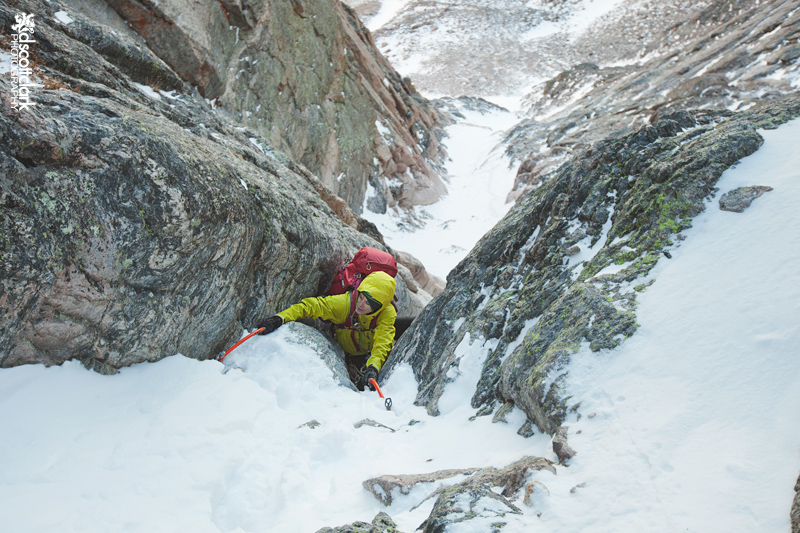 |
| Tristan blindly searches through the snow for a purchase on the last bulge of the first crux. |
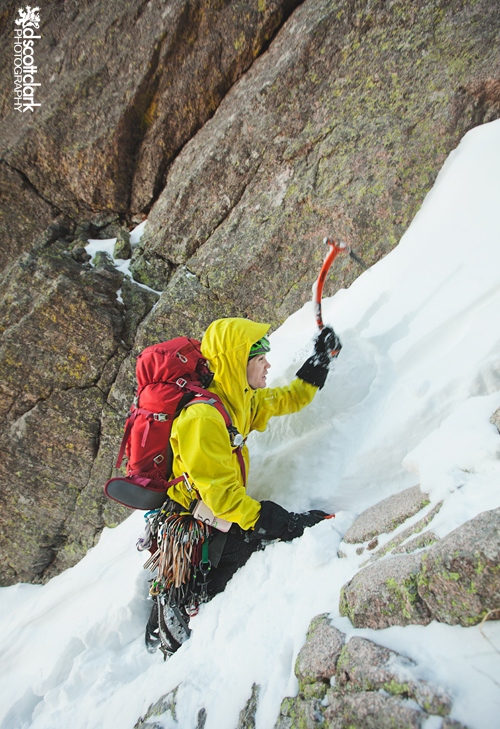 |
| Wallowing in waist deep powder the ice tools do little more than put useless holes in the snow. |
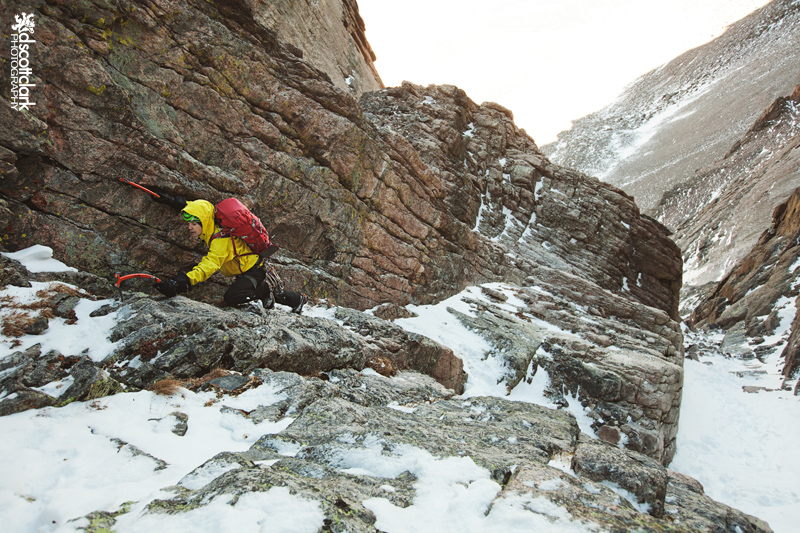 |
| Climbing on lower angle, more featured rock is way easier than wallowing in snow and/or climbing vertical rock with no feet. |
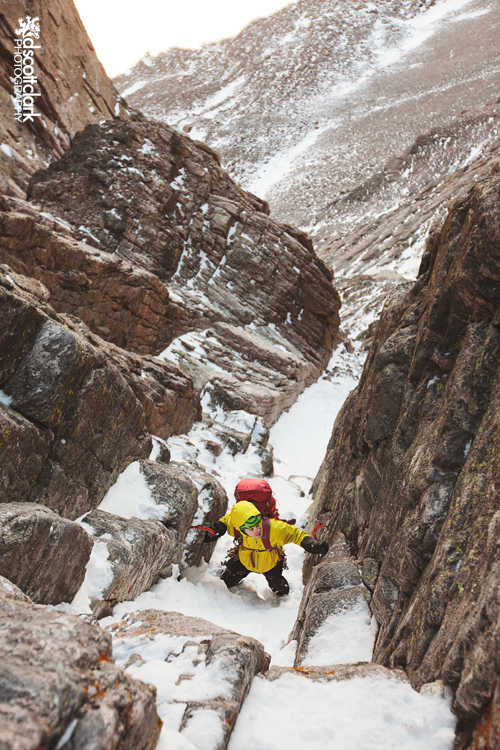 |
| The last crux section had much better feet and tool placement options. |
We free soloed the rest of the route, trying to avoid wallowing in the powder as much as possible. Thankfully there was lower angle rock with lots of features on the right side of the couloir. The last crux of the lower have of Dreamweaver went much more smoothly than the first. I was able to use the constriction more like a chimney and pressure both feet off of the opposing walls and there were many more solid tool placements for both hands.
We reached the top of the buttress, the end of the first half of Dreamweaver. The second half that takes you close to the summit of Meeker looked to be more of the same powdered mess that we just had come up, and it was getting late in the day so we decided to cut the climb short. We ate some food then down climbed to the Dark Star couloir which provided us an easier way down.
When we reached the basin floor my body decides it was time to shut down. It doesn’t care that I have a five mile hike ahead of me. Maybe for epics on Longs I should get more than an hour and half of sleep. I’ll keep that in mind for next time. Besides terrible climbing conditions, it was an incredible day adventuring. You always forget the pain and remember the awesome.
